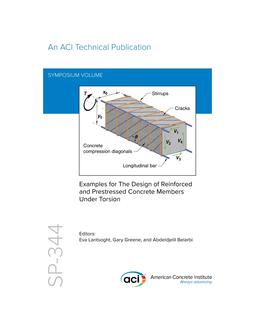ACI PRC-349.2 – Guide to the Concrete Capacity Design (CCD) Method – Embedment Design Examples
View contents.
ACI 349 Appendix B was developed in the mid 1970s following review of design methods and available test data. Since that time there has been extensive additional test data. In 1992, a task group was formed to compare the Appendix B methodology to that of the Concrete Capacity Design (CCD) Method for all available tests results. The review indicated that concrete breakout failures were predicted better (for example, for bolt groups, and edge conditions) by the new prediction equations in the Concrete Capacity Design Method than by the design method of Appendix B. After extensive review, ACI 349 chose to incorporate the Concrete Capacity Design Method to improve the requirements of the previous Appendix B.
Therefore, Appendix D of ACI 349 was developed to better define the design requirements for steel embedments. Revisions are periodically made to the code as a result of on-going research and testing. As with other concrete building codes, the design of steel embedments attempts to assure a ductile failure mode so that the embedment reinforcement yields before the concrete fails. In embedments designed for direct [or tensile] loading, the concrete pullout strength must be greater than the tensile strength of the steel. This report presents a series of design examples of ductile steel embedments. These examples have been updated to include the revision incorporated in Appendix D of ACI 349-06.
Product Details
- Published:
- 11/01/2007
- Number of Pages:
- 91
- File Size:
- 1 file , 3.6 MB
- Note:
- This product is unavailable in Russia, Ukraine, Belarus





